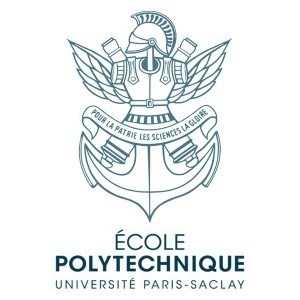Photos of university / #polytechniqueparis
The Bachelor's Degree Programme in Chemical Engineering and Biotechnology at the Polytechnic University is designed to provide students with a comprehensive education in the fundamental principles of chemical processes, chemical technology, and biotechnological applications. This program aims to prepare highly qualified specialists capable of designing, implementing, and optimizing chemical and biotechnological processes across various industries, including pharmaceuticals, food production, environmental protection, and energy.
Throughout the course of study, students acquire a solid foundation in mathematics, physics, and chemistry, which serve as the basis for understanding complex chemical reactions and engineering processes. The curriculum includes coursework in chemical technology, biochemistry, process engineering, thermodynamics, materials science, and automation, among others. Emphasis is placed on practical skills, with numerous laboratory exercises, workshops, and real-world project work integrated into the program to foster hands-on experience and problem-solving abilities.
Additionally, students gain expertise in designing and managing biotechnological processes, working with bioreactors, genetically modified organisms, and bioproducts. The program also covers areas such as process safety, environmental impact assessment, and sustainable development, ensuring graduates can contribute responsibly to society and industry.
The faculty comprises experienced professionals and researchers who utilize modern teaching methods and state-of-the-art laboratories to facilitate effective learning. Students are encouraged to participate in internships with leading national and international companies, undertake research projects, and engage in innovation activities. Upon graduation, alumni are equipped to enter diverse career paths, including process engineering, quality control, research and development, and academic teaching.
The program adheres to international standards of engineering education and encourages continuous learning and professional development. Graduates receive a diploma recognized both nationally and internationally, opening opportunities for employment and postgraduate studies worldwide. This program is ideal for motivated individuals passionate about chemical processes, biotechnologies, and sustainable solutions to contemporary challenges.
The Bachelor’s degree program in Chemical Engineering and Biotechnology at the Polytechnic University offers a comprehensive curriculum designed to prepare students for innovative careers in the chemical and biotechnological industries. Throughout the program, students will gain a solid foundation in fundamental sciences such as chemistry, physics, and mathematics, which are essential for understanding complex chemical and biological processes. The curriculum includes core courses in chemical process engineering, reaction engineering, thermodynamics, fluid mechanics, and materials science, allowing students to develop a deep understanding of how to design, analyze, and optimize chemical processes.
In addition to technical training, the program emphasizes the development of practical skills through laboratory work, project management, and internships. Students will have access to state-of-the-art laboratories equipped with modern analytical and process equipment, enabling hands-on experience in experimental techniques, process control, and safety protocols. Specializations within the program include bioprocess engineering, polymer technology, environmental protection, and sustainable development, allowing students to tailor their education to their interests and career goals.
As part of their training, students will undertake multidisciplinary projects that foster teamwork, problem-solving, and innovation. The program also encourages participation in research activities, providing opportunities to work alongside experienced faculty members on cutting-edge projects in areas such as biopharmaceuticals, renewable energy, and green chemistry. Graduates of the program will be equipped to design, operate, and optimize chemical and biotechnological processes, contributing to advancements in health, environmental sustainability, and industrial productivity.
The program is designed to meet international standards and aims to prepare graduates for careers in industry, research institutions, and academia. Students will develop key competencies including analytical thinking, creativity, technical writing, and effective communication. Furthermore, the curriculum incorporates modern software tools and simulation techniques essential for contemporary chemical engineering practice. With a strong emphasis on innovation and sustainability, the program prepares students to address global challenges through technological solutions. Upon graduation, students will be well-positioned to pursue advanced studies or enter professional roles as chemical engineers and biotechnologists in a wide range of sectors.
Entry Requirements: Applicants must have completed secondary education with a strong background in mathematics and physics. A minimum grade point average of 3.0 (or equivalent) in relevant subjects is expected. Proficiency in English is required, demonstrated through recognized tests such as TOEFL or IELTS, with minimum scores of 80 (TOEFL) or 6.0 (IELTS). Prior knowledge of chemistry and biology is advantageous but not mandatory. Applicants should submit their completed application form, academic transcripts, a motivation letter, and two references. Additionally, relevant work experience or participation in science competitions may strengthen the application.
Academic Requirements: Prospective students should have a solid foundation in mathematics, including algebra, calculus, and differential equations, as these are essential for understanding engineering principles. Knowledge of basic chemistry, physics, and biology will facilitate the coursework. The curriculum is designed to integrate chemical engineering principles with biotechnology, requiring students to be proficient in problem-solving, analytical thinking, and laboratory techniques. Students will undertake coursework in thermodynamics, process engineering, biochemistry, microbiology, and materials science. Laboratory components demand familiarity with scientific methods and safety protocols.
Language Requirements: All courses are conducted in English; therefore, non-native speakers must provide proof of English proficiency. Applicants failing to meet language standards may be required to complete a preparatory language course before starting their degree programme.
Additional Requirements: Candidates with relevant industrial or research experience in chemical engineering or biotechnology fields are encouraged to apply. An interview or entrance exam may be conducted for shortlisted candidates to assess their motivation and baseline technical knowledge. The university values interdisciplinary skills, teamwork, and innovation, which are considered during the selection process.
Overall, the program demands a comprehensive combination of academic achievement, language skills, and practical experience. Successful applicants demonstrate the capability to thrive in a rigorous scientific and engineering environment, preparing for careers in research, industry, or further academic pursuits in chemical engineering and biotechnology.
The financing of the Bachelor's degree program in Chemical Engineering and Biotechnology at the Polytechnic University is primarily supported through a variety of funding sources designed to ensure accessibility and quality of education. Tuition fees constitute the main component of funding and are set according to the university’s regulations for domestic and international students. The university offers different fee categories based on the student's nationality, with domestic students benefiting from state-funded spots and lower tuition rates, while international students are required to pay higher fees that reflect the costs of international education.
Additionally, the university provides various forms of financial assistance and scholarships aimed at supporting talented students, students from low-income families, and those demonstrating academic excellence. These scholarships are funded both by the government and the university’s own endowments. Grants and stipends are awarded through competitive selection processes, encouraging high academic performance and active participation in research projects.
The program also benefits from partnerships with industry stakeholders and research organizations, which contribute to research funding and practical training opportunities for students. Practical components of the degree curriculum are often financed through cooperation agreements and sponsorships from companies in related sectors, such as chemical manufacturing, biotechnological enterprises, and environmental agencies.
Furthermore, the university participates in national and international research grants, which contribute to the development of facilities and the enhancement of research activities within the program. Such funding supports laboratory equipment, internships, conference participation, and other academic activities crucial for comprehensive education in chemical engineering and biotechnology.
The university also encourages student mobility programs and international exchanges, which are sometimes financed via external scholarships or governmental programs, thereby broadening students' educational experience and international exposure without incurring additional costs for the students.
Overall, the financing structure of the program is designed to promote equitable access to quality education and to foster innovation and research in the fields of chemical engineering and biotechnology. The combination of tuition fees, government and private scholarships, research grants, industrial sponsorships, and international cooperation ensures a sustainable financial model that supports the ongoing development of the program and benefits all stakeholders involved.
The Bachelor’s degree program in Chemical Engineering and Biotechnology at the Polytechnic University is designed to prepare students for a wide range of careers in the chemical, pharmaceutical, food, and energy industries, as well as in research and development sectors. The program offers a comprehensive curriculum that combines fundamental engineering principles with specialized knowledge in chemical and biological processes, ensuring graduates are well-equipped to meet the evolving demands of modern industry. Students will engage with core subjects such as chemistry, physics, mathematics, and materials science, which serve as the foundation for more advanced topics in process engineering, bioprocess technology, and sustainable development.
Throughout their studies, students gain hands-on experience through laboratory work, project-based assignments, and internships in collaboration with industry partners. This practical exposure enables them to develop essential skills in process design, operational optimization, safety management, and environmental protection. The program emphasizes the importance of innovation and entrepreneurship, encouraging students to develop new biotech applications and sustainable chemical processes.
In addition to technical coursework, the program incorporates modules on business management, intellectual property, and regulatory standards, allowing students to understand the market and legal aspects of their field. The faculty team consists of experienced educators and industry professionals committed to providing high-quality education and research opportunities. The university also supports student participation in international exchanges and competitions, fostering a global perspective.
Graduates of this program are qualified for employment in multidisciplinary teams working on the development and manufacturing of chemical products, pharmaceuticals, bio-based materials, and renewable energy sources. They can pursue careers in process engineering, quality assurance, R&D, and management positions, or continue their education through postgraduate studies. The program’s comprehensive approach aims to produce versatile specialists capable of addressing global challenges in health, environmental sustainability, and resource management.








